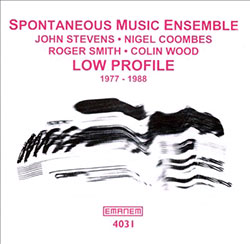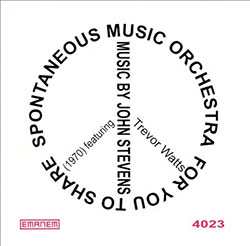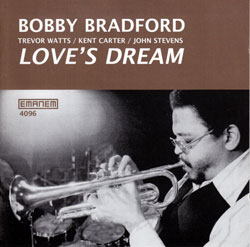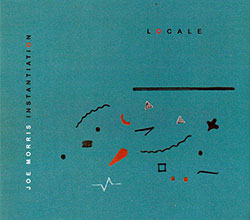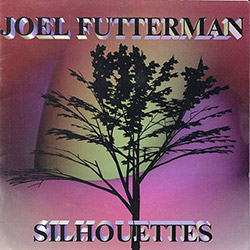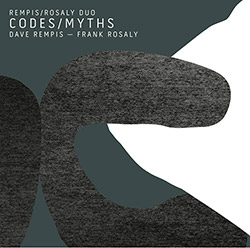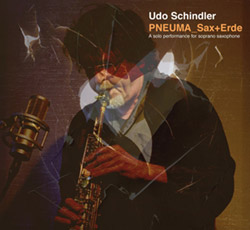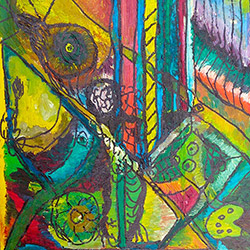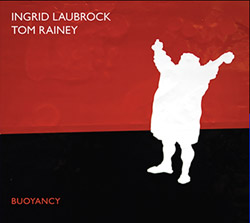![Stevens, John: Search and Reflect [BOOK] (Rockschool) Stevens, John: Search and Reflect [BOOK] (Rockschool)](https://www.teuthida.com/productImages/misc4/28607.jpg)
A reprinting of drummer/percussionist John Steven's music workshop manual used in his London-based organisation Community Music with practical application for running music workshops based on improvisation, originally published in 1985, this edition was re-published by Rockschool in 2007, with additional forewords by Steve Beresford and Maggie Nicols.
In Stock
Quantity in Basket: None
Log In to use our Wish List
Shipping Weight: 30.00 units
John Stevens-author
Click an artist name above to see in-stock items for that artist.
128 pages, sprial bound, 8.8 x 0.7 x 11.8 inches
UPC: 1902775694
Label: Rockschool
Catalog ID: 1902775694
Squidco Product Code: 28607
Format: BOOK
Condition: New
Released: 2007
Country: UK
Packaging: Book
"This music workshop manual documents the pieces used by the London-based organisation Community Music in its workshops. The value in these pieces lies in their practical application and they are an excellent tool for every music workshop leader, for every music teacher, and for individual musicians with an interest in improvisation. The pieces are designed to encourage more people to participate in group music-making and therefore cater as much for the musically inexperienced as for the proficient musican. Each piece includes detailed guidance, but only a few include musical notation. They may be played or sung.
An introduction - Preliminaries - offers invaluable advice on how to run an effective improvisation workshop. The manual is then divided into two sections - Rhythm and Improvisation. In the Rhythm Section, the twelve pieces aim to help develop rhythmic skills - maintaining regular tempo, independence, and overall rhythmic awareness. The author demonstrates the essence of timekeeping with the basic unit of ONE TWO. This is presented with clear guidelines for its practice and development, stage by stage. Later, the Rhythm Tree chapter teaches how to play 3 over 4, 5 over 4, and 7 over 4, with many practical ideas and exercises for workshop use. Oddseven explores the harmonic possibilities of a scale within a rhythmic framework.
The Improvisation Section deals with specific processes and skills which help to prepare the way for a sensitive, concentrated approach to create group interaction and individual spontaneity. Beginning with three preparatory exercises to encourage each individual to maintain a balance between being a receptive ear and having creative freedom, this section continues with Click Piece (focussing on short sounds, independence and connectiveness), Sustain (focussing on long sounds and breathing) and a further 14 pieces which develop listening and playing skills within a group environment.
Search and Reflect was first published in 1985 by Community Music, with a foreword by Christopher Small. This edition is re-published by Rockschool in 2007, with additional forewords by Steve Beresford and Maggie Nicols.
About John Stevens
John Stevens (1940-1994) was one of the pioneers of free improvisation in the UK. The son of a tap dancer, he began to listen to jazz as a child. While doing his National Service, he studied drums at the Royal Air Force School of Music in Uxbridge. There, he met saxophonist Trevor Watts and trombonist Paul Rutherford, two musicians who became close collaborators. The Spontaneous Music Ensemble ("SME"), which he co-founded in the mid-1960s with Trevor Watts, explored a form of improvised music that was not dependent on conventional harmony and timekeeping. SME performances at their London base, The Little Theatre Club, could range from duos to 12-piece ensembles.
Early lineups would invariably feature trumpeter Kenny Wheeler and saxophonist Evan Parker but Stevens played alongside a large number of prominent free improvisors in the SME, including Derek Bailey, Peter Kowald and Julie Tippetts. He also worked with jazz musicians such as pianist Gordon Beck, bassist Ron Matthewson and guitarist Allan Holdsworth. From the 1970s, the make-up of the SME began to settle down to a regular group of Stevens, Nigel Coombes playing violin, and Roger Smith playing guitar. John Stevens died in 1994.
About Community Music
In 1983 John Stevens co-founded Community Music, an organisation based in Islington, London, in order to take music to disadvantaged groups who would not normally get the chance to receive professional music guidance. Its work drew upon John's long experience of running improvisation workshops at Ealing College and elsewhere, from the early 1970s onwards. The pieces in Search and Reflect grew out of the musical philosophy established by John Stevens and developed by him and his musician colleagues at Community Music. The writing of the book itself was a collective project by this group with the aim of exploring how best to present John's ideas as teaching titles. Thus the pieces in this manual have been thoroughly road-tested in hundreds of workshops."
128 pages, sprial bound, 8.8 x 0.7 x 11.8 inches
Artist Biographies
• Show Bio for John Stevens "John William Stevens (10 June 1940 in Brentford, Middlesex - 13 September 1994 in Ealing, west London) was an English drummer. He was one of the most significant figures in early free improvisation, and a founding member of the Spontaneous Music Ensemble (SME). Stevens was born in Brentford, the son of a tap dancer. He used to listen to jazz as a child, but was initially more interested in drawing and painting (media through which he also expressed himself throughout his life). He studied at the Ealing Art College and then started work in a design studio, but left at 19 to join the Royal Air Force. He studied the drums at the Royal Air Force School of Music in Uxbridge, and while there met Trevor Watts and Paul Rutherford, two musicians who became close collaborators. In the mid-1960s Stevens began to play in London jazz groups alongside musicians like Tubby Hayes and Ronnie Scott, and in 1965 he fronted a septet. Influenced by the free jazz he was hearing coming out of the United States by players like Ornette Coleman and Albert Ayler, his style began to move away from fairly traditional be-bop to something more experimental. In 1966 SME was formed with Watts and Rutherford and the group moved into the Little Theatre Club at Garrick Yard, St. Martin's Lane, London to develop their new music. In 1967 their first album, Challenge, was released. Stevens then became interested in the music of Anton Webern, and the SME began to play generally very quiet music. Stevens also became interested in non-Western musics. The SME went on to make a large number of records with an ever changing line-up and an ever changing number of members, but Stevens was always there, at the centre of the group's activity. He also played in a number of other groups, drumming in Watts' group Amalgam and later forming bands like Freebop and Fast Colour, for example, but the SME remained at the centre of his activities. In the latter part of 1967 Evan Parker joined the SME and worked closely with Stevens in the group, eventually becoming one of the longest standing members. He later summed up Stevens' approach to improvising in two basic maxims: if you can't hear another musician, then you're too loud; and there is no point in group improvisation if what you are playing doesn't relate to what other members of the group are playing. Stevens also devised a number of basic starting points for improvisation. These were not "compositions" as such, but rather a means of getting improvisational activity started, which could then go off in any direction. One of these was the so-called "Click Piece" which essentially asked for each player to repeatedly play a note as short as possible. Stevens played alongside a large number of prominent free improvisors in the SME, including Derek Bailey, Peter Kowald, Julie Tippetts and Robert Calvert, but from the mid-1970s, the make-up of the SME began to settle down to a regular group of Stevens, Nigel Coombes playing violin, and Roger Smith playing guitar. During the mid-1970s Stevens played regularly with guitarist and songwriter John Martyn as part of a trio that included bassist Danny Thompson. This line up can be heard on Martyn's 1976 recording Live at Leeds. From 1983 Stevens was involved with Community Music (CM), an organisation through which he took his form of music making to youth clubs, mental health institutions and other unusual places. Notes taken during these sessions were later turned into a book for the Open University called Search and Reflect (1985). In the late 70s and early 80s John was a regular performer at the Bracknell Jazz Festival. Aside from SME, Stevens also ran or helped to organise groups that were more jazz or jazz-rock based, such as Splinters, the John Stevens Dance Orchestra, Away, Freebop, Folkus, Fast Colour, PRS, and the John Stevens Quintet and Quartet. He also contributed significantly to Trevor Watts' group Amalgam and Frode Gjerstad's Detail, as well as collaborating with Bobby Bradford on several occasions. The SME continued to play, the last time being in 1994 with a group including John Butcher. Stevens died later that year." ^ Hide Bio for John Stevens
4/22/2024
Have a better biography or biography source? Please Contact Us so that we can update this biography.
Track Listing:
John Stevens-author
Book
Percussion & Drums
Search for other titles on the label:
Rockschool.


![Stevens, John: Search and Reflect [BOOK] (Rockschool) Stevens, John: Search and Reflect [BOOK] (Rockschool)](https://www.teuthida.com/productImages/full/28607.Full.jpg)


